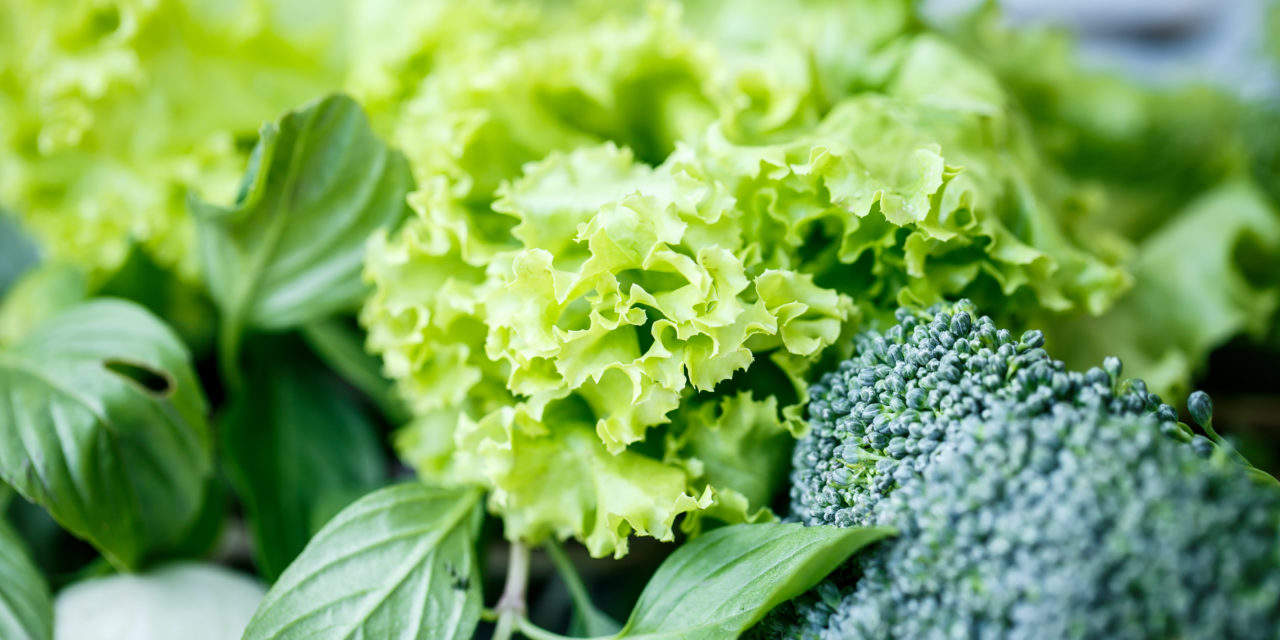In this post, we ask expert educator Ann-Mary Hromek about folate nutrition and how folic acid contributes to healthy aging.
Folate or folic acid is a form of the water soluble B-vitamin that is vital in the production and healthy development of the cells in the body. It is an important regulator of metabolism, and it is essential in cell replication as it aids in the synthesis of DNA. Folate also helps form RNA which is important in the synthesis of proteins. It also works to help other B vitamins such as vitamin B12 in digesting proteins.
Why do we need folate as we age? What are its actions and will it slow aging or prevent disease?
Because replication of cells declines with age, folate is necessary in helping delay the aging process. It has been indicated that individuals ages 50 years and older benefit from incorporating foods high in folate in their diets as it enhances their memory and cognitive performance. It is beneficial for proper functioning of the brain, therefore, playing a significant role in both mental and emotional health. Folate may delay aging by the promotion of healthier skin. Folate has also been found to prevent hearing impairment or hearing loss that comes with aging. Additionally, studies also show that folic acid may prevent the development of cancers of the lung or the colon.
Folic acid is important in keeping homocysteine, an amino acid by-product, in the blood from elevating. Homocysteine is a toxin in the blood that is known to escalate the cholesterol levels in the heart muscles; therefore, increasing the risk for heart disease. It has also been reported that homocysteine may also play a role in the loss of hearing. Other diseases caused by high levels of homocysteine are blood clot formation and coronary artery disease.
Can I get enough folate in my food?
Since folate is a water soluble vitamin, the body will not be able to store this vitamin. It needs to be replenished on a regular basis. For those who are concerned about whether they are getting the right amount of folate, increase the intake of food sources rich in folate. Natural food sources include dark green leafy vegetables such as spinach, broccoli, kale, arugula, green beans, swiss chard, asparagus, lentils, turning greens and mustard greens. Other excellent sources are strawberries, oranges and other citrus fruits, orange juice, avocado, soybeans, pinto beans, dried beans, peas, and meats such as turkey and liver. Cereal products are also fortified with folic acid, as well as grain products such as bread and pasta.
If I am to supplement with folate, in what form should I take it? What are the “rules of engagement”?
Although folate may be found in natural food sources, 100% can be destroyed by food preservation and preparation as it is sensitive to heat and light. Research also shows that individuals can have the optimum effects of folic acid by adding folate supplements or multivitamins in the body’s daily intake.
What dose of folate should I take?
The recommended dietary allowance for adults 15 years and older is generally at 400 micrograms per day. Depending on the severity of condition or folic acid deficiency, the recommended dosage may be from 400 mcg to 1,000 mcg. For people who are pregnant or those who are planning to get pregnant needs about 600 micrograms per day. For breastfeeding women, 500 mcg per day is recommended. According to clinical studies much higher doses 1-5mg/day can be used in such conditions as Ulcerative Colitis and protection against some cancers.
Are there any risks with supplementation with folate?
The risk of side effects from folic acid supplementation is rare. Some people who have taken excessive amounts of folic acid supplements report mild side effects, such as dizziness, sleeping problems, flatulence, bitter taste, abdominal problems, decreased appetite, skin reactions and nausea. Toxicity from folic acid does not normally occur as it’s water soluble properties makes it easily excreted by the body. However, over dosage of folic acid may lead to a deficiency of Vitamin B12.
Are there any special requirements when I take folate supplements?
Folic acid supplements are well absorbed by itself and is administered orally. It does not matter what time of the day a folic acid supplement is taken but it should also be taken once a day on an empty stomach. Additionally, take folate at the same time each day.
Does folate need other compounds to accompany it for optimal absorption?
Folic acid works best with vitamin C and other B-vitamins, particularly vitamin B12.
If I supplement with folate, do I need to take this in divided doses?
Folate supplement does not need to be taken in divided doses.
Can I test so as I know whether I’m deficient in folate or to ascertain that I’m taking the correct dose for me?
In order for individuals to determine and profile their vitamin deficiency, a blood test may be performed.
What is the best source of folate?
As with all other nutrients, getting folate or folic acid from a regular diet is the ideal way. Folate is highest in leafy vegetables, such as spinach and lettuce. However, the body may not get the nutrients it needs from diet alone as the body absorbs the synthetic form of folic acid better than the natural form. Therefore, taking a multivitamin with folic acid is also important.
Last Reviewed: 05-May-2011
Ann-Mary Amber
Latest posts by Ann-Mary Amber (see all)
- This is why gut health is so important - 24/02/18
- Best antioxidants for skincare - 18/09/17
- CoQ10 health benefits - 09/07/17






